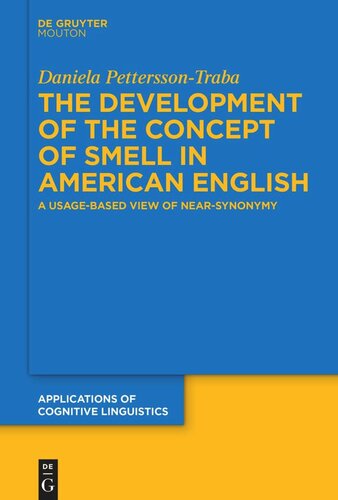

Most ebook files are in PDF format, so you can easily read them using various software such as Foxit Reader or directly on the Google Chrome browser.
Some ebook files are released by publishers in other formats such as .awz, .mobi, .epub, .fb2, etc. You may need to install specific software to read these formats on mobile/PC, such as Calibre.
Please read the tutorial at this link: https://ebookbell.com/faq
We offer FREE conversion to the popular formats you request; however, this may take some time. Therefore, right after payment, please email us, and we will try to provide the service as quickly as possible.
For some exceptional file formats or broken links (if any), please refrain from opening any disputes. Instead, email us first, and we will try to assist within a maximum of 6 hours.
EbookBell Team

5.0
88 reviewsThe last decades have witnessed a renewed interest in near-synonymy. In particular, recent distributional corpus-based approaches used for semantic analysis have successfully uncovered subtle distinctions in meaning between near-synonyms. However, most studies have dealt with the semantic structure of sets of near-synonyms from a synchronic perspective, while their diachronic evolution generally has been neglected. Against this backdrop, the aim of this book is to examine five adjectival near-synonyms in the history of American English from the understudied semantic domain of SMELL: fragrant, perfumed, scented, sweet-scented, and sweet-smelling. Their distribution is analyzed across a wide range of contexts, including semantic, morphosyntactic, and stylistic ones, since distributional patterns of this type serve as a proxy for semantic (dis)similarity. The data is submitted to various univariate and multivariate statistical techniques, making it possible to uncover fine-grained (dis)similarities among the near-synonyms, as well as possible changes in their prototypical structures. The book sheds valuable light on the diachronic development of lexical near-synonyms, a dimension that has up to now been relatively disregarded.